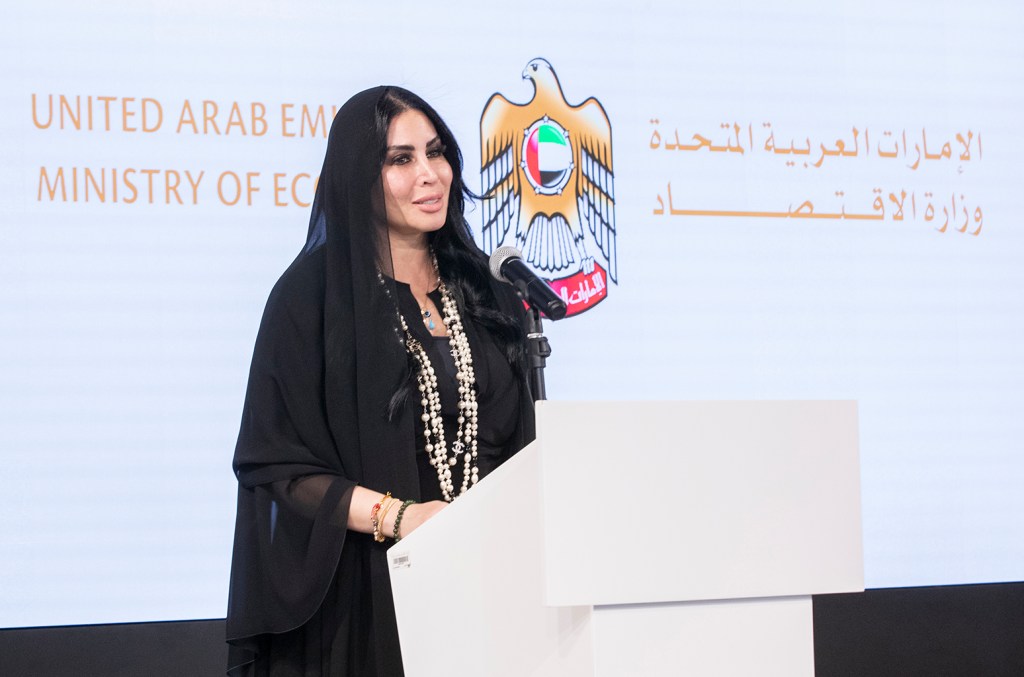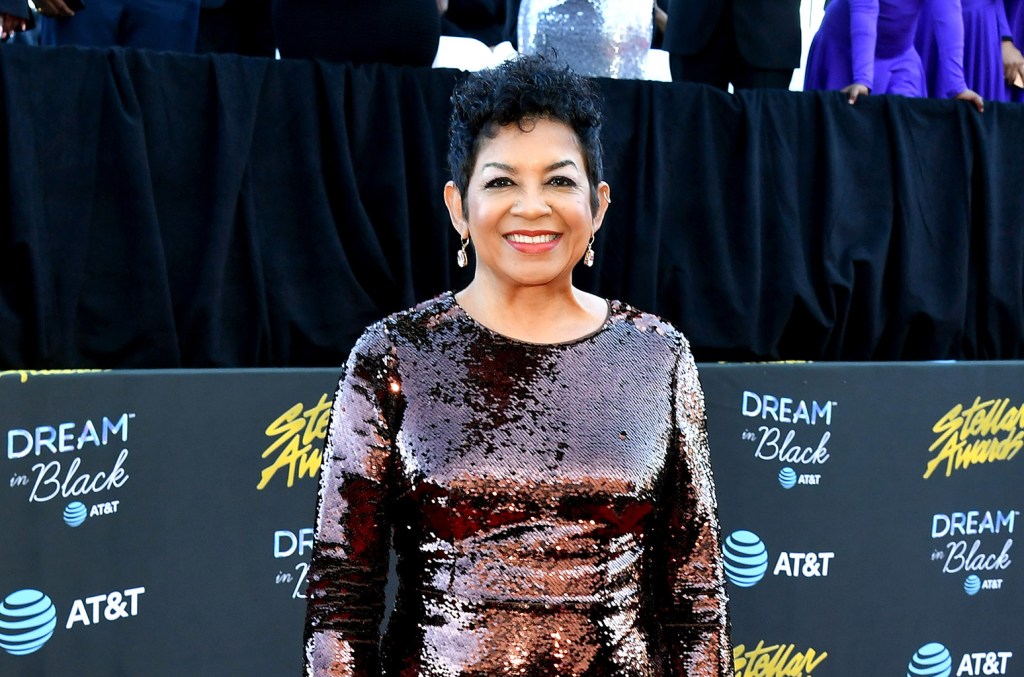bmi

Independent music company EMPIRE has announced a wave of key leadership moves across its publishing, commerce and Nashville divisions as the company celebrates its 15th anniversary.
Vinny Kumar has been promoted to president of EMPIRE Publishing, where he’ll continue overseeing global deals and strategy. Under Kumar’s leadership, EMPIRE Publishing has become a leading independent publisher, representing Grammy and Latin Grammy-nominated songwriters and earning recognition across ASCAP, BMI, and NMPA awards. The division debuted in Billboard’s Hot 100 Publisher Rankings Top 10 in 2024.
“We met nearly two decades ago and he’s been part of the foundation of what this company stands for,” EMPIRE founder and CEO Ghazi said of Kumar. “He will continue to lead with integrity and creativity, and his passion for music and strategic vision have helped elevate every facet of our publishing business.”
Vinny Kumar
EMPIRE Africa also launched its publishing arm under managing director Munyaradzi Chanetsa, with notable successes from writers behind Davido’s Grammy-nominated “Unavailable” and multiple Southern African hits.
Meanwhile, Matthew Maysonet has been elevated to senior vice president of commerce and streaming partnerships, leading a global team of nearly 20. Andrea Galicia moves up to senior director, while Goldie Harrison (formerly of UnitedMasters) and Daisy Moreira (a Def Jam veteran) join as directors in the division. The team will drive monetization and streaming strategies for EMPIRE’s diverse roster, including Latin and global acts.
Galicia, Harrison and Moreira
In Music City, EMPIRE Nashville added Bri Small as vice president of digital and Zak Waters as director of A&R. Small (ex-Warner Music Nashville) will lead digital engagement for Nashville artists, while songwriter and producer Waters will focus on talent discovery and creative development. Both hires underscore EMPIRE’s commitment to an artist-first, genre-fluid approach in one of the industry’s most competitive markets.
EMPIRE Nashville leader Jen Way praised Small for bringing “such a special energy and creativity to everything she does,” calling her the ideal person to guide the label’s digital strategy. She described Waters as a versatile creative with strong storytelling instincts who will “represent exactly where EMPIRE Nashville is headed—artist-first, genre-fluid, and creatively fearless.”
Bri Small (Credit: David Bradley) and Zak Waters (Credit: Zak Cassar)
Check out a full rundown of this week’s staffing news below.
Dee Hale (Sony Music Publishing)
Image Credit: Amy Allmand Photography
Trending on Billboard ASCAP, BMI and SOCAN have all adopted policies to accept registrations of musical compositions partially generated using artificial intelligence (AI) tools, the PROs jointly announced Tuesday (Oct. 28), while noting that they will continue to reject registrations of fully AI-generated works. According to a press release, all three PROs define a partially […]
Jeff Pardo was named BMI Christian songwriter of the year for the second time in three years at the BMI Christian Awards, which were held at its Nashville office on Tuesday (June 17). The private event was hosted by Leslie Roberts, BMI’s avp, creative.
Pardo, 43, wrote or co-wrote five of BMI’s 25 most-performed Christian songs: “Don’t Stop Praying,” “Heaven Changes Everything,” “Praise the Lord” with Jake Henry and Micah Tyler, “Running Home” and “Strong” with Anne Wilson. Pardo received a Grammy nomination in 2013 for co-writing “My Jesus” with Wilson and won two GMA Dove Awards in 2022. He has successfully crossed genres as well, working with artists such as Lady A, Ben Rector and Tauren Wells.
BMI’s Christian song of the year went to “Praise,” written by Chris Brown, Cody Carnes, Stephen Furtick and Chandler Moore. The hit by Elevation Worship featuring Brandon Lake, Chris Brown & Chandler Moore spent 31 weeks at No. 1 on Billboard’s Hot Christian Songs chart and nine weeks at No. 1 on the Christian Airplay chart.
Trending on Billboard
Leading up to song of the year, BMI named the 25 most-performed Christian songs of the previous year. The roster included 18 first-time award winners.
Capitol CMG Publishing brought home publisher of the year for representing 17 of the 25 most-performed songs of the year including “Praise” as well as “Don’t Stop Praying,” “I Believe,” “Jesus Does” and “Take It All Back.”
In addition, Jackie Patillo, president of the Gospel Music Association and the GMA Foundation, was honored with the BMI Spotlight Award. As a surprise tribute, five-time GMA Dove Awards female vocalist of the year (and nine-time Grammy nominee) Natalie Grant, performed her first recording, “I Am Not Alone.” She was accompanied by Bernie Herms.
“This is more than just a business,” Patillo said in accepting the award. “We are all making a difference and impacting culture, and that’s what we get up for every day.” Previous recipients of the BMI Spotlight Award include Dottie Leonard Miller, Randy Edelman and Frank Gari.
Special moments at the event include Roberts calling BMI’s 2019 Compass Award winner Elwyn Raymer to the stage to start the celebration with a prayer; country songwriter Jordan Rowe giving the audience a preview of his unreleased song, “Way Back;” and first-time BMI award-winner Seph Schlueter sharing his hit “Counting My Blessings.”
For a complete list of winners, go here.
While headlines from California, D.C., India and Iran have dominated a chaotic news cycle this week — plus add in a restructuring at MCA and the loss of two stone cold icons — the music industry has actually had a meh few days when it comes to promotions and new hires. So without any further delay here’s the latest edition of Executive Turntable.
BMI‘s board of directors has voted to keep president and CEO Mike O’Neill on for three more years, through Dec. 31, 2029. O’Neill has been with BMI, one of the most dominate performing rights organizations (PROs) in the U.S., for the last 30 years, and since taking the helm as president and CEO, O’Neill has guided the company through some of the biggest business changes in its history. This includes its 2024 sale to New Mountain Capital, its move to for-profit status, and its partnership with Music Nation to establish a licensing infrastructure in the UAE. “I have never been more optimistic about the future of BMI, and there are only greater things ahead,” O’Neill added. “BMI’s mission to drive value for our affiliates, increase our distributions and ensure the long-term success of our family of songwriters, composers and publishers continues at full speed.”
Trending on Billboard
Wasserman elevated Shelley Pisarra to chief insights and innovation officer, reporting to COO Darrell Coetzee. Previously evp of global insights, Pisarra will now lead the company’s strategy and innovation platforms, aiming to fuel growth across sports, music and entertainment. Based in NYC, Pisarra’s new role includes expanding Wasserman’s product offerings and creating proprietary tools to drive revenue for talent, brands, and rights holders. With over 25 years of experience across sports, media, and consumer goods — including positions at PepsiCo, Novartis, Nestle and Bristol-Myers Squibb — Pisarra has played a key role in transforming Wasserman’s insights capabilities through data analytics, consumer profiling, and fan segmentation. “I’m thrilled to step into this role, as Wasserman continues to demonstrate our commitment to putting insights to work to best serve our clients, while anticipating what’s next for the fan at the intersection of sports, music, and entertainment,” said Pisarra.
NASHVILLE NOTES: FEM co-owner Leslie Fram was named governor of the Recording Academy’s Nashville Chapter … Artist management company Make Wake Artists launched an in-house digital strategy department. The new department is led by Jess Keifer (head of digital marketing and social strategy) and Kyle Jonas (artist strategy and management coordinator). Make Wake Artists’ clients include Luke Combs, The Castellows, The Wilder Blue, Brent Cobb and Cooper Alan.
Centricity Music promoted four team members to vice president roles, highlighting the Nashville-based Christian label’s growth. Matt Ewald is now vp of A&R, Kris Love becomes vp of promotions, Joshua Wurzelbacher advances to vp of creative and Michael Pons is promoted to vp of finance. These promotions follow five earlier ones this year, with all four individuals having advanced internally since joining between 2013 and 2020. “Centricity has grown over the years in terms of artists, writers and employees,” said Caren Seidle, CEO. “This growth has led to increased responsibilities and work load of our staff. These promotions recognize the leadership these employees provide to their departments consistent with the high level of service for which Centricity is known.”
RockForce, a provider of workforce and production solutions for the live industry, opened a new office in Nashville to support regional productions. The office includes RockForce divisions The Production Collective and Collective Payroll. Jeremy Young, the company’s evp of business development, has also been named vp of operations for the new location. With nearly 30 years of experience in artist management, touring, and commercial leadership, Young began his career at SFX/Clear Channel Entertainment and has worked with artists like Maroon 5 and Gavin DeGraw. He later managed DeGraw’s career and led national sales for CAPS/Cast & Crew before joining RockForce. “RockForce is experiencing meaningful and sustainable growth, and I’m thrilled to be part of it,” said Young.
RADIO, RADIO: Matt Pinfield returns as host of Flashback With Matt Pinfield on Westwood One this weekend, following a near-fatal stroke in January that left him unresponsive for over two months. After extensive rehab in Los Angeles, the former MTV VJ is set to resume hosting duties on June 14–15 on the nationally syndicated rock show. During his recovery, Leslie Fram served as interim host of Flashback. Pinfield also continues his weekday role on The Matt Pinfield Show on 88.5 The SoCal Sound in Los Angeles. Cumulus Media’s Brian Philips praised Pinfield’s recovery, calling him a “warrior.”
ICYMI:
Mike Harris
Under new boss Mike Harris, MCA Nashville laid off nearly 20 employees across multiple departments. The cuts affect several high-level execs, including vps Leigh Malleus (media marketing), Karen Naff (creative services) and Gary Keffer (strategic marketing). Senior directors Michelle Hall, Troy Scott and Leah Ducey were also let go, along with multiple directors and coordinators. [Keep Reading]
Last Week’s Turntable: iHeartMedia Shuffles Top Accountants
Today (June 4), Music Nation Copyrights Management, which handles music rights management in the United Arab Emirates, announced the company received formal approval to license, collect and distribute royalties from public performance and neighboring rights. The approval will deliver a vital new source of revenue for music rights holders, according to Music Nation.
Through partnerships with performing rights organization BMI and digital global collective management organization SoundExchange, Music Nation will be the industry’s first rights management organization capable of natively collecting performance, mechanical and neighboring rights.
“Today marks a pivotal moment for the UAE and Music Nation,” said Music Nation chairwoman Rasha Khalifa Al Mubarak in a release. “After years of careful planning, Music Nation is positioned to become a cornerstone of music licensing, empowering the Emirates’ vibrant creative industry. As an Emarati, I am honored to establish a world-class music rights infrastructure that not only elevates local artists to greater heights, but also showcases our rich musical heritage and cultural traditions to the world.”
Trending on Billboard
Music Nation is part of a broad UAE initiative to support the creation of a thriving music ecosystem and to elevate the region’s music industry by protecting the rights of music creators and compensating them for the commercial use of their work.
“The Ministry [of Economy] continues its efforts to develop an advanced system for the governance of copyright and related rights, based on global best practices. This is achieved by developing regulatory and legislative frameworks, stimulating investment in creativity, and supporting effective collective management systems that ensure the protection of rights and enhance the confidence of creators and musicians in the country’s creative climate,” said undersecretary of the Ministry of Economy Abdullah Ahmed Al Saleh in a release.
He continues: “The collective management license for music plays an important role in promoting a creative culture in society, providing comprehensive protection for the intellectual property rights of musicians and artists, and providing mechanisms to ensure financial justice for artists and creators in the distribution of revenues and transparency in the collection and distribution of copyrights. This supports raising the competitiveness of the music industry in the country and making it an attractive destination for creative and cultural works worldwide.”
Music Nation will begin collecting royalties in the UAE for more than 2 million songwriters, composers, publishers, artists, sound recording owners and other music creators. That 2 million figure represents the combined copyrights held by clients of BMI and SoundExchange. Music Nation will collect and distribute royalties on their behalf in the UAE.
“We are thrilled to partner with Rasha, the Music Nation team and SoundExchange to ensure that music creators in the UAE have the opportunity to turn their passion into their careers by being paid for their creative work,” said BMI president and CEO Mike O’Neill in a release. “BMI has always been an unwavering advocate for the songwriters, composers and rights holders behind the songs the world loves, and we’re excited to provide our music licensing infrastructure, expertise and deep experience fostering career development to benefit the region’s incredible creators. There are endless possibilities ahead that Music Nation will deliver, and we look forward to a bright future together.”
The UAE and the broader Middle East and North Africa (MENA) region remain the fastest-growing music market in the world, with the IFPI reporting the territory expanded in 2024 for a tenth consecutive year. Music revenue in MENA last year climbed by 22.8%, outpacing the global average of 5.9% growth.
“This is a major milestone and a vote of confidence from the UAE Ministry of Economy in the combined abilities of Music Nation, SoundExchange and BMI,” said SoundExchange president and CEO Michael Huppe in a release. “We’re excited to get to work establishing the region’s premier collective management organization and serving creators with the same level of excellence we have for more than two decades in the U.S.”
Jackie Patillo, Gospel Music Association president, is set to receive the BMI Spotlight Award for her dedication to the genre and for her career as an advocate for all Christian and gospel music creators. Previous recipients of the award include Dottie Leonard Miller, Randy Edelman and Frank Gari.
The award will be presented at the 2025 BMI Christian Awards, which will be held on June 17 at the organization’s Nashville office. The private event will be hosted by Leslie Roberts, BMI’s avp of creative, Nashville, and Mike O’Neill, BMI’s president & CEO. In addition, BMI’s Christian songwriter of the year, song of the year, publisher of the year and the 25 most-performed Christian songs of the previous year will be announced.
“Through Jackie’s dynamic leadership, innovative vision, and unwavering love for Christian and Gospel music, she’s been able to bring both genres together through a message that unifies all while reaching a new generation of music lovers,” Roberts said in a statement. “The work that she’s done over her illustrious career is inspiring, and we’re thrilled to be presenting Jackie with the BMI Spotlight Award. We’re also looking forward to celebrating all our award-winning songwriters and producers, highlighting their achievements through community, worship and music.”
Trending on Billboard
As a veteran music executive with posts at Star Song, Benson, Integrity, and Verity Records, Patillo helped shape the careers of such artists as Natalie Grant, Stephen Hurd, Lisa McClendon, Donnie McClurkin, Joe Pace, Israel & New Breed, Marvin Sapp and Alvin Slaughter. As the president of the Gospel Music Association and GMA Foundation, where she has led the organization since 2010, Patillo has demonstrated her commitment to advocating for all Christian and Gospel music makers.
Patillo also serves as the co-executive producer of the GMA Dove Awards, which is viewed by over 3 million people annually on TBN. She was inducted into the Stellar Gospel Music Hall of Fame in 2019, the SOURCE Hall of Fame in 2023, and was honored on her 10th anniversary with the Jackie Patillo Leadership Dove Award.
Atticus Ross was named a BMI Icon at the 2025 Film, TV and Visual Media Awards on Wednesday (May 14), in recognition of his body of work across film and television. The private ceremony held at the Beverly Wilshire Hotel in Beverly Hills, Calif., was hosted by Mike O’Neill, BMI president & CEO, and Tracy McKnight, BMI vp, creative, film, TV & visual media.
O’Neill presented Ross with the BMI Icon Award, expressing that his “innovative spirit and passion for pushing the boundaries of composition have literally reengineered the way we experience storytelling.” He went on to say, “we are very proud to honor your incomparable contributions to the world of music as a composer, a rock pioneer and an icon.”
Trending on Billboard
Ross was emotional upon receiving the honor and stated, “The thing I love about film music is that there aren’t any rules, there aren’t any pros. Essentially, to my mind, it’s all about how we make people feel, and that’s what music is about.” Moreover, he voiced, “I put a lot of effort into making sure that this never feels like a job. I wake up every day grateful for the opportunity to make music, this is my dream, and I don’t take it lightly.”
Ross is a multifaceted musician, composer and producer who has received two Oscars, two Grammys, one Primetime Emmy, one BAFTA Award, three Golden Globe Awards and three Critics Choice Awards. He’s also won 18 BMI Film, TV and Visual Media Awards, as well as one BMI Country, one BMI Pop and one BMI R&B/Hip-Hop Award.
In addition to his work as a composer, Ross has had a successful career as a member of Nine Inch Nails and a longtime collaboration with bandmate Trent Reznor. Together, they’ve created some of the most memorable film and TV scores of the past two decades, including The Social Network, The Girl with the Dragon Tattoo, Soul, Challengers and Watchmen. Ross has also collaborated with his brother Leopold Ross and wife Claudia Sarne on movies such as The Book of Eli and Triple 9 and series like Black Mirror, Dear Mama and Shōgun.
Previous BMI Icon Award recipients include Terence Blanchard, Mychael Danna, Alexandre Desplat, Ramin Djawadi, Harry Gregson-Williams, James Newton Howard, Christopher Lennertz, Thomas Newman, Rachel Portman (PRS), Mike Post, Alan Silvestri, Brian Tyler and John Williams.
During the ceremony, composers were honored for music featured in the past year’s top-grossing films, top-rated network television series, highest-ranking cable network and streamed media programs, and the most popular video games. Multiple award winners, in addition to Ross, included Fil Eisler, Tom Howe, Andrew Lockington, Blake Neely, Julia Newman, Mike Post, Carlos Rafael Rivera, Tyler Strickland and Atli Örvarsson.
The event celebrated 29 first-time award winners including Kathryn Bostic, Goh Nakamura, Kara Talve, Dara Taylor and Zack Ryan.
For a complete list of winners, visit here.
Benson Boone, Taylor Swift and Teddy Swims took top honors at the 2025 BMI Pop Awards, which were held on Tuesday (May 13) at the Beverly Wilshire Hotel in Beverly Hills, Calif. The private event was hosted by Mike O’Neill, BMI president & CEO; Barbara Cane, vp of worldwide creative; Samantha Cox, vp of creative, NY; and Tracie Verlinde, vp.
Boone was presented with the BMI Champion Award by O’Neill, who praised his “boundless talent and creativity.” Previous recipients include Peso Pluma, SZA, Jonathan McReynolds, Khalid, Mark Ronson, Residente, Sebastian Krys, Keith Urban and Lee Thomas Miller.
Trending on Billboard
After receiving the award, Boone thanked BMI, his team, family and the songwriters in the room, sharing “This is not my award, this is for everyone who has been a part of working on this project. To the songwriters, producers, to my mother and father… to my label to Warner Chappell, to everyone who has played a part… it takes a huge powerhouse of a team to do what I’m trying to do, and I have a wonderful team.”
Boone also paid tribute to his cowriter and collaborator Jack LaFrantz, sharing, “If you’re a songwriter or producing or have anything to do with the creation process of music, you understand how incredible it is when you find someone you really like to work with and work well with. I would just like to give a special thank you to Mr. Jack LaFrantz. Any of these songs that you hear you would not be hearing them without him. If you’re trying to release songs, find people that you love and make it something that you love. I promise you it is the best thing ever when you find gold in the room.”
Boone then took to the stage for an intimate three-song performance backed by piano. He started off with “Slow it Down,” followed by “Drunk in My Mind” and “Beautiful Things.”
In addition to his BMI Champion honor, Boone received two BMI Pop Awards for “Beautiful Things” and “Slow It Down,” with co-writer LaFrantz. The backflipping singer-songwriter received his first BMI Pop award in 2023 for “GHOST TOWN.”
Swift was named BMI’s Pop Songwriter of the Year, which ups her collection of BMI Awards to a staggering 72 – including the BMI President’s Award in 2009 and the BMI Taylor Swift Award in 2016.
This was the second year in a row Swift has been named Pop Songwriter of the Year. She co-wrote seven of the previous year’s most-performed songs: “Don’t Blame Me,” “Down Bad,” “Fortnight,” “I Can Do It with a Broken Heart,” “Is It Over Now?,” “Now That We Don’t Talk,” and “Who’s Afraid of Little Old Me?.”
BMI’s Pop Song of the Year went to “Lose Control” written and performed by Teddy Swims with BMI co-writers Julian Bunetta, Marco “Infamous” Rodriguez and Mikky Ekko. The smash hit has spent a record-breaking 60 nonconsecutive weeks in the top 10 of the Billboard Hot 100, reaching No. 1 in March 2024.
Universal Music Publishing Group was named Publisher of the Year for representing 28 of the previous year’s most performed songs, including “Agora Hills” performed by Doja Cat, “Espresso” performed by Sabrina Carpenter and “Houdini” by Eminem.
Throughout the ceremony, the 50 most-performed pop songs of the previous year in the U.S. were also awarded. BMI welcomed 61 first-time Pop Award winners, including J. Cole for “All My Life” by Lil Durk, Jesse Fink; Peter Finn for “Stargazing” performed by Myles Smith; Djo for “End of Beginning”; and Nevin Sastry for “A Bar Song (Tipsy)” by Shaboozey. This also marked the first BMI Pop award for country superstar Morgan Wallen for “I Had Some Help,” co-written with Charlie Handsome and other first-time BMI Pop winners Hoskins, ERNEST and Chandler Paul Walters.
For a full list of the 2024 honorees, visit the BMI site.
The PRO business is booming! But could it become a victim of its own success?
For the 75 years after the 1939 founding of BMI, the U.S. had three organizations that collected public performance royalties for songs on behalf of composers and publishers: ASCAP, SESAC and BMI. And for much of that time — from the 1950s, when ASCAP and BMI expanded into all genres, to 1993, when a group of investors purchased SESAC — the competition might best be described as gentlemanly. ASCAP and BMI became the Coke and Pepsi of PROs, licensing similar rights, for different songs, to similar bars, restaurants, concert venues and television and radio stations. The privately owned SESAC was less aggressive than it is now.
Some licensees want to set the clock back to that simpler time. They may have inspired members of Congress to ask the Copyright Office to look into the subject, which resulted in a Notice of Inquiry and then a flood of comments. (Billboard has a guide here.) To understand why, and what this means, it helps to realize how much U.S. performance rights licensing has changed in the last decade.
In 2013, Irving Azoff, ever the disruptor, founded GMR, which like SESAC — owned by the investment group Blackstone since 2017 — signs big songwriters with big advances. Unlike ASCAP and BMI, which are more constrained by antitrust consent decrees and allow all songwriters to join, GMR and SESAC are free to cherry-pick from the most popular. (All four have big writers; GMR and SESAC just don’t have small ones.) With fewer writers, they are thought to bring in more money per performance of a song. They are also thought to be wildly profitable: A recent deal for a stake in GMR valued the company at $3.3 billion. Any business that good attracts competition, and two new PROs have emerged over the last five years: AllTrack, founded by former SESAC board member Hayden Bower; and the Florida-based PRO Music Rights.
Trending on Billboard
Things got complicated. Venues that had once received three bills for their use of music were suddenly getting five or six. Most knew they needed rights from what we might call the big four — and let’s pause for a moment to consider just how weird it is that the U.S. now has more established PROs than major labels — but some weren’t sure if they needed the rights controlled by AllTrack and PRO Music Rights. Costs went up — with the possibility of future increases — and let’s not kid ourselves that this is the real issue here.
Both the Notice of Inquiry and the responses to it are fascinating because, as several executives pointed out to me, this isn’t an issue that the Copyright Office — or even government regulation in general — seems especially well-suited to solve. The Copyright Office administers and consults on intellectual property law, and licensees presumably see the NOI as an opening move in a push for legislation that could constrain PROs — or even empower a government body to set royalty rates, as one does for mechanical rights. That would be a disaster for publishers and songwriters, which get their only negotiating power from performing rights. And licensees have much more lobbying power than the music business, simply because every Congressional district has bars and restaurants, while the music business is relatively concentrated in a few cities.
What, exactly, is the problem here? Look at the NOI, which sets out two very different issues: “The number of PROs in the United States has expanded in recent years, potentially undermining licensing efficiencies” and “PROs do not all disclose comprehensive information concerning the works that are covered by their licenses, and their royalty distribution practices and policies.” The only thing these issues have in common is that neither of them is really a matter for copyright law.
The idea that there are too many PROs is odd because for years the issue was that ASCAP and BMI had too much market power — hence the antitrust consent decrees. In legal terms, this is known as trying to have it both ways. Competition is a good thing, as long as it’s fair. If it’s not, that’s a matter for competition law — which traditionally champions competition! — not copyright.
One of the real issues behind the NOI is that it can be hard to tell which PRO controls what rights. This can be complicated, though, and the issues often have less to do with concealing information than with presenting it in an accessible way. AllTrack, which is focused on the independent market, allows potential licensees to search a database of songs to which it controls rights, but that requires looking up specific compositions. The site displays far more prominently some of the artists who play songs to which AllTrack owns at least some rights, including Billy Ray Cyrus, Elle King and No Doubt. In smaller type, underneath, it says that “The artists above are examples, but not an all inclusive list, of performers of AllTrack music” — and in most, but not all, cases it doesn’t control rights to all these artists’ songs, let alone their rights as songwriters. Billboard readers understand this, but it might drive the average bar owner to drink.
PRO Music Rights is even more controversial. It seems to focus on serving smaller songwriters in the so-called long tail, and it says it controls rights to more than 2 million works, including songs performed by A$AP Rocky, Wiz Khalifa and others. It is unclear how popular many of those songs are, though, and both the ASCAP and BMI responses to the NOI challenge its business practices more directly than those of AllTrack. In its filing, ASCAP says that in 2018 it discovered millions of songs registered by PRO Music Rights “that were apparently either computer-generated sounds or merely random titles” and BMI’s response points out that Spotify in a court filing accused PRO Music Rights founder Jake Noch of flooding its platform with AI music, although the case in question subsequently settled. (PRO Music Rights filed its own response to the NOI that accuses the established PROs of engaging in “anti-competitive practices.”)
The other side of transparency is that it’s not always clear how some PROs distribute some of the money they collect. But it seems hard to believe that licensees really worry about this — most just want to pay less — and that issue is really between PROs and creators and publishers. (Alas, Billboard advertisers seldom ask about the compensation of the publication’s witty and dashing “Follow the Money” columnist.) The best way to address this — maybe the only way to address it in a lasting way — could be a competitive market. Big songwriters who think that the big PROs don’t serve them well can sign with SESAC or GMR, although not all of them do. Why shouldn’t smaller ones have more options as well?
Like every other issue in the music business, this is ultimately about money — rightsholders want to charge more and licensees want to pay less. That’s business. And it seems best to keep it as business, without getting the government involved.

Back in September, the House Judiciary Committee sent a letter to the Register of Copyrights, Shira Perlmutter, requesting the examination of “concerns” and “emerging issues” with U.S. performance rights organizations (PROs). More specifically, the Committee expressed concerns about the alleged “lack of transparency” with PROs and the so-called “proliferation” of new PROs in the market.
So early this year the U.S. Copyright Office opened a notice of inquiry that allowed licensors and licensees to submit a comment and weigh in about whether or not they like the way that the U.S. PRO system works today.
Trending on Billboard
The inquiry has become one of the most important issues facing the music publishing sector this year, and it’s one that is especially sensitive, given mechanical royalties and the majority of performance royalties (for those signed to ASCAP or BMI) in the U.S. are not negotiated in a free market — a common complaint amongst publishers, PROs and songwriters. The idea that this inquiry could bring additional scrutiny or inspire Congress to pursue additional regulation to performance royalties in the future has become a stress point. Those who have to license music through PROs, however, believe that the system has grown to be too complicated and too expensive and a renewed conversation about reform is needed. (For more background, read Billboard’s explainer here).
The comment period ended on Friday (April 11), and the 12,344 comments were released on Monday (April 14). Since then, Billboard has been reviewing the comments submitted by key groups and individuals — like publishers, songwriters, venues, restaurants and, of course, the PROs themselves.
Here is a guide to those comments.
What did the PROs say?
Of the six U.S. PROs, five of them — ASCAP, BMI, SESAC, GMR and PRO Music Rights (PMR) — submitted comments to the Copyright Office. AllTrack, one of the two new entrants to the market along with PMR, did not.
ASCAP: American Society of Composers Authors and Publishers, one of the two U.S. PROs that operates under a consent decree and the only one operating on a not-for-profit basis, wrote that “American songwriters, composers and music publishers are some of the most heavily regulated business owners in the country.” The organization then called the complaints about “lack of transparency” “particularly disingenuous,” pointing out that ASCAP has already invested significant resources into its public repertory database, called Songview, which it shares with BMI, “and yet little evidence suggests these licensees ever use that information.” Plus, ASCAP says that “distribution” of royalties “should be decided between music creators and their chosen PROs, not by licensees or government entities.” They note that “further regulation of ASCAP and its members would “harm music creators.”
ASCAP also pushed back on the idea of rising costs for licensees: “The market for musical compositions continues to grow year over year, as does the volume of copyrighted music,” it said. “It is nonsensical, and contrary to the foundational principles of a free market, that licensees could obtain permission to use more and more music each year without a corresponding increase in what they pay for it.”
It also pointed to the emergence of DIY distributors like DistroKid and Tunecore, private equity’s increasing interest in music as an “asset class,” and technology lowering barriers to entry as reasons why new PROs have emerged. ASCAP then cast doubt on PMR’s catalog, saying, “We discovered copyright registrations for literally millions of ‘musical works’ that were apparently either computer-generated sounds or merely random titles.” Read the full comment here.
BMI: Broadcast Music Inc., the second of the PROs in the U.S. that operate under a consent decree, said in its comments that additional regulation of PROs would harm songwriters and composers and that licensees called for this inquiry “with the goal of further reducing licensing fees at the expense of songwriters, composers and music publishers that depend on them.” In addressing licensees’ accusations that PROs lack transparency, BMI said it “rejects” the idea that these so-called issues “have any impact on a licensee’s obligation to compensate copyright owners for the use of copyrighted works,” though BMI added that it “is confident that [it] succeed[s] in this effort.”
It wrote, however, that AllTrack and PMG, “in stark contrast” to BMI, “make little information readily available regarding the contents of their repertoires.” BMI continued to cast doubt on PMR, writing that evidence suggests “that [PMR] greatly overtates its relative share of copyrighted and performed works… it is unclear whether certain of the results in [PMR’s] search function are even authentic musical works,” later adding that Spotify alleged that PMR’s founder, Jake Noch, “‘flood[ed] online streaming services with large quantities of’ AI-generated music.” Read the full comment here.
GMR: Global Music Rights, an invite-only PRO founded in 2013 for “top-tier songwriters,” said that it believes “the competitive [PRO] marketplace fostered by the four major PROs (ASCAP, BMI, SESAC and GMR)” “ensure[s]” that music creators and publishers are “fairly compensated.” It also stated that “some of the entities that are now appealing to the Office to intercede…are themselves not licensed by GMR, yet continue to use GMR’s music.” The organization also cited its differences from other PROs, saying that it offers “an identical rate card to all of its clients” and “individualized service, increased transparency, and enhanced economic terms” that songwriters allegedly couldn’t find in the “incumbent PROs.”
GMR also took shots at AllTrack and PMR, saying they “appear to be contrary to the customs and practices of the four major PROs.” “A PRO that offers no threshold level of transparency and is paired with a repertoire that is largely devoid of any meaningful value to any licensee is deeply problematic,” GMR wrote. “Coupled with attempts to take advantage of small businesses by relentlessly threatening litigation while failing to provide music users with insight into the repertoires that they represent, such a PRO should certainly be subject to further inquiry.” Read the full comment here.
PMR: Pro Music Rights wrote that the more established PROs have engaged in “anti-competitive practices” and have tried to box PMR out of the market. The organization also claimed that “BMI’s board — despite publicly disparaging Pro Music Rights — approved confidential discussions about selling BMI to Music Licensing, Inc., culminating in meetings with Goldman Sachs.” They proposed a number of reforms, including “mandated transparency” and “uniform licensing fees” so that “every voice in music, from small establishments to major corporations, is treated with fairness and respect.” Read the full comment here.
SESAC: Society of European stage Authors and Composers, the second-oldest PRO in the U.S. and the first for-profit player, said that maintaining “freedom of choice” for publishers, songwriters and composers was important in the U.S. PRO marketplace, forcing the PROs to “adjust or modif[y]” their operations “when [members] raise concerns.” SESAC noted that it has a publicly available database to search through their works and that they are more concerned that “nearly 70% of restaurants and over 90% of bars remain exempted” from paying royalties to PROs. SESAC also noted that ASCAP, BMI, SESAC and GMR are “currently exploring the inclusion of SESAC and GMR data to enhance Songview’s reconciled view of copyright ownership information” for increased transparency.
And SESAC pointed out that there are multiple ways to license music without using a PRO at all, including easy-to-license song libraries Mood Media, Soundtrack Your Brand and more. Read the full comment here.
What did the publishers say?
Publishers work with the U.S. PROs every day to ensure they are getting properly compensated for public performances. Some top publishers, like UMPG, opted not to submit comments. Those that did typically aligned closely with the stance also expressed by the National Music Publishers’ Association (NMPA) (which counts the vast majority of U.S. publishers as members), implying that the top publishers — major and indie — are fairly unified in their stance.
NMPA: The NMPA’s comment called the inquiry a “thinly veiled attempt by licensees to reduce the already depressed rates they pay” for performance royalties and called for Congress and the Copyright office to “take such claims skeptically.”
Instead, the NMPA advocated, as it often has, for “unregulated music licensing markets” and said that “musical works copyrights are already significantly undervalued…due to overregulation.”
The NMPA believes that the “creation of new PROs…is an indication of a competitive marketplace…which improves PRO performance for their members.” The NMPA said that it is “disingenuous [to] characterize the growth of the PRO market as a negative development…In reality an increase in licensing costs is an inevitable outcome of a growing market…Requiring licensees to pay fairly for the music that they use is not the systematic injustice that licensees portray; it is simply the cost of operating a business built on performing music someone else wrote.” Read the full comment here.
Warner Chappell: Warner Chappell raised in its comment that it would like to have the ability of “selective withdrawal of digital rights” from PROs’ blanket license. This resurrects a hot button issue that divided publishers and PROs dating back to 2013. The same idea was brought up again in 2019 and has previously been supported by the NMPA, the three major publishers and many of the biggest indies. Read the full comment here.
The selective withdrawal of digital rights from the PROs would basically mean publishers could still use the PROs’ services for the general licensing of bars, restaurants, venues and more, but that publishers could negotiate directly with digital services like Spotify, Apple Music, Pandora or iHeartRadio, cutting out any fees associated with royalties first going through the PROs before reaching publishers and allowing for global, not U.S.-specific, deals. But this would mean more work for the publishers, given there’s a large number of digital services beyond just the streaming and digital radio giants.
In the past, raising this point has also raised other, much less welcomed, ideas, like a 100 percent licensing system (meaning licensees only need a license from one of the songwriters on a song instead of all of them, as they have to do today, a system referred to as “fractional licensing”). Plus, it would be a seismic shift for the U.S. PROs, which have been investing in developing complex systems for digital royalty collection over the years. More background information is available on that issue in Billboard’s past coverage here.
Sony Music Publishing: SMP’s comments largely echoed the NMPA’s comments, saying that “SMP believes that less and not more regulation is not only good for songwriters but also a sensible pro-competitive approach where the true value of musical compositions is determined in a free market.” Read the full comment here.
What did the licensees say?
Licensees, such as clubs, bars and restaurants, are thought to have kicked off this inquiry in the first place. And the fact that they exist in every political jurisdiction in the U.S. likely gives them more political power than the music business, which lives mostly in clusters around New York, Los Angeles and Nashville.
National Restaurant Association: This organization said that the “emergence and proliferation of new PROs” has “jeopardized” the “efficacy of the U.S. music licensing system” “to the detriment of small business restaurant operators across the nation” and pointed the finger specifically at “recent” PROs such as GMR, PMR and AllTrack. The restaurants say they could face “costly litigation” if they accidentally play an unlicensed song. To date, the association found that its members pay “just shy of $4,500 on average to license music on an annual basis, which represents upwards of nearly 0.5 percent of the average U.S. small business restaurant’s total annual sales … for an industry that runs on an average pre-tax margin of 3 percent to 5 percent, this cost is significant.” The organization proposed three key solutions: requiring PROs to create centralized databases of their performance data; allowing establishments to receive itemized statements of works licensed from PROs upon request; and “a public registry of PROs that also summarizes what portions of the music industry they represent.” Read the full comment here.
Fox Theater: The famous Atlanta theater said in its comment that AllTrack and Pro Music Rights’ attempts to collect licensing fees are “redundant” and “create a significant financial burden” on venues. The theater also accused PROs of “routinely rely[ing] on trade magazines to determine artist appearance schedules, rather than actual reports submitted by the venue. This often leads to incorrect invoices submitted by PROs, which leads to countless hours of administrative work.” The Fox Theater suggested that “PROs should be required to undergo public audits…to ensure that they are not routinely overbilling licensees.” Read the full comment here.
International Association of Venue Managers: This organization pointed to the complexity of licensing music when many songwriters and many PROs are involved. “Venues often find themselves paying high fees without understanding what rights they are actually securing,” the comment read. The organization suggested a few changes to the US PRO system, including a publicly accessible and legally reliable database; that PROs should be required to update and maintain the database; the establishment of a federal registration system for PROs; mandated itemized statements upon request from licensees; and ensuring rate-setting processes reflect the PROs’ market share. Read the full comment here.
What did the songwriters and independent advocates say?
Songwriters and independent advocates in the music business have long advocated for change — often taking even greater swings than the industry establishment and calling out issues too political for music companies to touch in their advocacy. They are all also known for centering songwriters in their efforts, but still — that doesn’t mean everyone in this grouping holds the same ideas about how to effect positive change in music.
Songwriters of North America: SONA, a songwriter organization founded in 2015, said that it “does not believe that any aspect of this requires action from any regulatory or legislative body regarding copyright. We believe that any existing issues can and should be handled outside of the purview of the U.S. government and can be solved within the industry itself.” The organization also said it “recognizes the concerns from licensees” about the so-called “proliferation” of PROs, but “SONA does not take an official stance in regards to this issue.” Read the comment here.
Artist Rights Institute, North Music Group, Blake Morgan: led by songwriter David Lowery, songwriter Blake Morgan, attorney Chris Castle and North Music Group founder Abby North, the group wrote a comment, that said, “We are apprehensive that the subtext of the NOI is the justification of yet another compulsory license for songwriters,” calling them “among the most regulated workers in America.” The comment also likened PROs to “representative bodies for independent contractors who lack the protections afford by traditional labor unions,” and while they are not actual unions, “PROs serve a crucial function by negotiating…on behalf of their members.” Without this, the commenters believe indies would be more “vulnerable.” Among their proposed solutions is the idea of a “localized PRO at the city level,” royalty auditing of the PROs, and allowing songwriters to do “partial withdrawals” to manage some of their rights outside of the PRO. For a full explanation of these ideas, read the comment here.
Songwriters Guild of America / Society of Composers and Lyricists / Music Creators of North America: This comment noted that “the independent music creator community agrees without reservation that maintenance of the competitive PRO collective licensing system in the US as described above (including its ‘fractional licensing’ structure) is essential.” In response to licensees’ complaints about there being too many PROs, SGA/MCNA/SCL said these complaints are “a renewed effort by users to invent new, unfounded, inconvenience-based excuses for royalty payment-avoidance supported by no reasonable motivation other than generation of windfall user profits.” Read the comment here.

 State Champ Radio
State Champ Radio 








